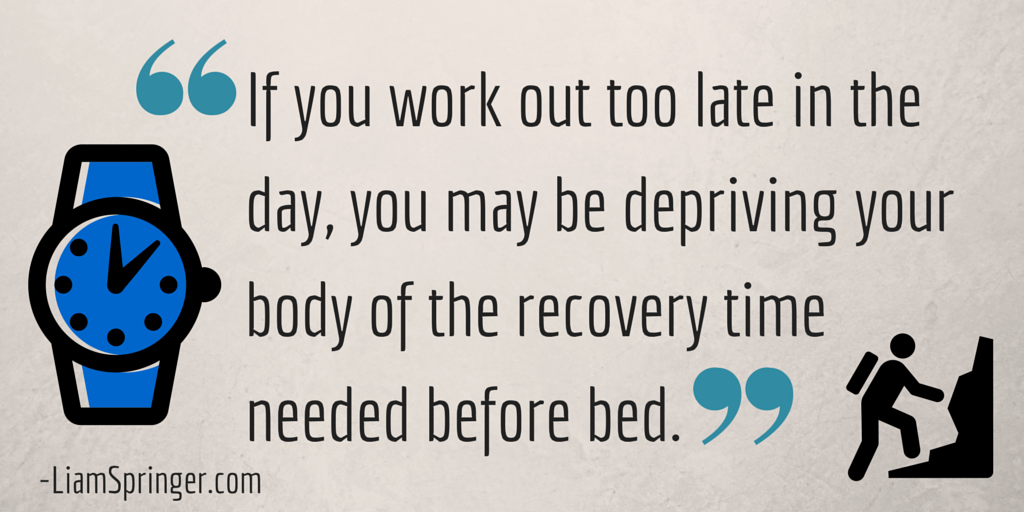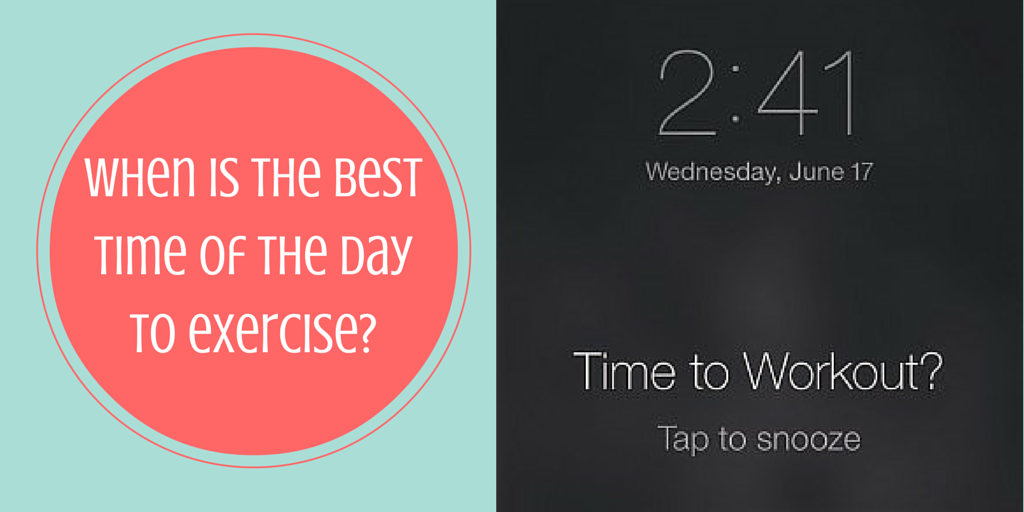
Because exercise causes stress on the body’s metabolism,1,2 it is important to balance that stress—not only with good nutrition, but also optimal timing. To get the most out of physical activity, time your workout carefully in relationship to sleep, digestion, and energy restoration. If you are getting the proper nutrition before, during, and after your workout, you are one step ahead of the game.3,4 The next thing to consider is the best time of day to exercise: morning, noon, or evening?
Why Noon is Probably the Best Time of Day to Exercise
The best time of day to exercise depends somewhat on the intensity and duration of your workout. If you’re a healthy individual with a mild exercise program, then exercising in the morning just after eating some fruit is probably fine. But remember that when you first wake up, your body is in low gear and depleted of energy and minerals. If your exercise program is moderate or intense, it’s best to wait until a few hours after breakfast to work out. A noon workout may be ideal, because it gives you enough time to digest a large breakfast and replenish your energy reserves before tackling the challenge of physical activity. A couple hours after eating a healthy lunch may also be ideal. Whether you workout before or after lunch, your body should still have plenty of time to recover from the stress of exercise before bedtime (especially with the help of an afternoon snack and/or healthy dinner). Therefore midday is generally the best time of day to exercise.
Risks of Exercising Too Early or Late in the Day
Many people like to get their workout in first thing in the morning; others find it difficult to get in a workout until after their workday is complete. However, keep in mind that if you exercise too early or too late in the day, your body could suffer the consequences of over-exercise. If you work out too intensely in the morning, you are putting your body under additional stress when its energy stores are already depleted from sleep. If you work out too late in the day, you may be depriving your body of the recovery time needed before bed. Also, you may not have enough energy to meet the demands of exercise after a long day. Over-exercise can be very damaging to your health, so be careful not to overdo it.5,6

Who Is at Risk?
Endurance athletes such as marathon runners are especially at risk for damage from over-exercise.7-9 Anyone with metabolic dysfunction is also at higher risk, even if undergoing a relatively mild workout program.
Exercise can be hugely beneficial to your health, but there are many factors to consider in order to optimize your workout and promote healing—time of day is just one of them! To learn more about metabolic nuances and receive the latest advice on fitness and nutrition, sign up for my newsletter.
References
- Goldstein RE, et al. Effects of chronic elevation in plasma cortisol on hepatic carbohydrate metabolism. Am J Physiol 264, No. 1 Pt 1 (Jan 1993): E119-127. http://www.ncbi.nlm.nih.gov/m/pubmed/8430780
- McGregor VP, Banarer S, Cryer PE. Elevated endogenous cortisol reduces autonomic neuroendocrine and symptom responses to subsequent hypoglycemia. Am J Physiol Endocrinol Metab 282, No. 4 (Apr 2002): E770-777. http://www.ncbi.nlm.nih.gov/pubmed/11882496
- Costa RJ, Jones GE, Lamb KL, et al. The effects of a high carbohydrate diet on cortisol and salivary immunoglobulin A (s-IgA) during a period of increase exercise workload amongst Olympic and Ironman triathletes. Int J Sports Med 26, No. 10 (Dec 2005): 880-885. http://www.ncbi.nlm.nih.gov/pubmed/16320174
- Westerterp KR. Limits to sustainable human metabolic rate. The Journal of Experimental Biology 204 (2001): 3183-3187. http://jeb.biologists.org/content/204/18/3183.full.pdf
- Fehrenbach E, Northoff H. Free radicals, exercise, apoptosis, and heat shock proteins. Exerc Immunol Rev 7 (2001): 66-89. http://www.ncbi.nlm.nih.gov/pubmed/11579749
- Guasch E, et al. Atrial fibrillation promotion by endurance exercise: demonstration and mechanistic exploration in an animal model. J Am Coll Cardiol 62, No. 1 (Jul 2013): 68-77. http://www.ncbi.nlm.nih.gov/m/pubmed/23583240
- Heitkamp HC, Schmid K, Scheib K. Beta-endorphin and adrenocorticotropic hormone production during marathon and incremental exercise. Eur J Appl Physiol Occup Physiol 66, No. 3 (1993): 269-274. http://www.ncbi.nlm.nih.gov/pubmed/8386618
- Mouzopoulos G, Stamatakos M, Tzurbakis M, et al. Changes of bone turnover markers after marathon running over 245 km. Int J Sports Med 28, No. 7 (Jul 2007): 576-579. http://www.ncbi.nlm.nih.gov/pubmed/17436198
- Semple CG, Thomson JA, Beastall GH. Endocrine responses to marathon running. Br J Sports Med 19, No. 3 (Sep 1985): 148-151. http://www.ncbi.nlm.nih.gov/pmc/articles/PMC1478253







